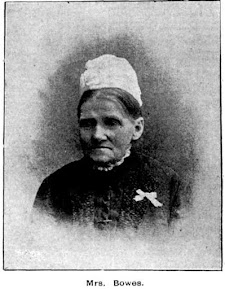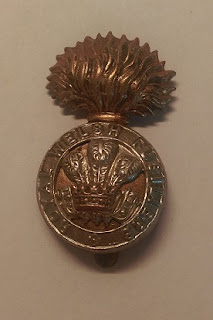An incident that appears to have been deeply traumatic
With Reconciliation Week and
another anniversary of the Mabo decision just passed as well as over 15 years
since the Sorry apology (together with NAIDOC week on the horizon), it seemed
fitting to discuss the life of an Indigenous man, a tracker and later a thief,
who is buried a long way from his country.
For any First Nations people
reading this blog I wish to advise that an image of a person who has passed is
contained herein.
BILLY BOGAN
Billy was born sometime in
the 1860’s at Dandaloo on the Bogan River just west of Dubbo, NSW, in Wiradjuri
Country. The names of his parents have been lost in time and no formal records
were kept. Billy, although without a regular education, was skilled in life and
bush skills and by the age of @ ten was living and working on a large pastoral property near Cowra known
as Bumbaldry. His companion there was Stephen Field whose surname he chose to use
on occasion as an alias. In October 1875 a warrant was issued for both boy’s
arrest for allegedly stealing two horses, a saddle and a bridle belonging to
the property’s owner Mr. Watt. Evidence given to the court was that the one of
the horses belonged to another indigenous youth. The boys were convicted but
Watt agreed to keeping them on and they only served a few hours of prison confinement.
Billy and Stephen had several bouts of trouble, no doubt due to the youthfulness
and by 1882, Billy had left the property and was working as a Police tracker at
Warren on the Macquarie River.
In October of that year, he assisted in the arrest of Charles Robertson, a European, who
was charged with stealing fodder from the Police Station. Before the trial, which
was set for later that month Robertson, who was out on bail, offered Billy £10 to
state he did not see the theft. He refused the bribe saying he had to meet Senior
Constable Piggott who was in charge of the Station. Robertson then offered to
meet him later near the Station and Billy agreed. Billy told Piggott and he stated he would observe the encounter while hiding. It was later stated that Robertson had
invited Billy to have a drink from a bottle he had brought with him. Billy took
the bottle straight to Piggott and it was noticed a white sediment settling at
the bottom. Later testing proved that the drink was laced with strychnine,
enough to kill several people. Robertson was convicted of attempted
murder and sentenced to fifteen years in prison.
Billy resigned from the Police soon after, no doubt “spooked” by events
and moved to Nyngan on the Bogan River west of Warren. He met an Indigenous man
named Colane Jimmy Tarpot and the two of them were arrested for allegedly
stealing goods from a Nyngan house to the value of £5. Tarpot was convicted but
Billy was found not guilty.
Times were extremely tough
during the depression of the 1890’s and work was scarce. In July 1894, whilst using the
alias of William Field (his friend’s surname from earlier times), he was arrested
on suspicion of having broken into a home near Parkes to steal goods and what’s
more, to the abduction of Kate Riley, the elder sister of the soon to be Police
tracker, Alec Riley. Billy pleaded guilty to the stealing charge and was given
two years in Bathurst gaol but contested the abduction charge and was found not
guilty.
Upon his release he headed
west and in October 1895, he broke into a house, stole some goods and was
arrested. He was sentenced to two years’ hard labour in Bathurst gaol once
more.
However, on the train from
Cowra to Bathurst, he was leg-ironed to another prisoner, Albert Katz, and
neither had been handcuffed. They were being guarded by Constable Healey who
was overpowered by the pair as the train slowed entering a tunnel. Healey was
knocked unconscious; the keys were found, and the leg-irons unlocked. The pair
jumped from the cabin; Katz was soon recaptured but Billy headed further west
leading the authorities on a long pursuit.
Billy was spotted near Cargo
in November 1895. Police learned the following month that he had been passing
himself off as a kangaroo shooter near his original country. As he knew the
area better than most, he was easily able to evade Police capture. At one stage
he later recounted that he hid in a tree as he watched the Police and tracker
pass below him. He never feared the trackers as they more than likely “kin” and would never reveal where he was hiding.
Billy headed north to
Queensland eventually reaching Charleville and was arrested by the Police
stationed there and local trackers who had no relation with him. He was put in
leg-irons, handcuffed and returned to Bathurst over 1,000 kilometres away by
train.
At the committal hearing on
25 November 1895, Billy represented himself and put forward his defence that it
was Katz who was the one who attacked Constable Healey. As an uneducated man,
he impressed many who were at the hearing, but he was committed to stand trial
on the charge of “intent to commit murder”. The case was heard on 13 April 1897
before Justice Henry Cohen with Billy, this time, having legal representation.
He pleaded not guilty and once more stated that it had been Katz who had struck
the Constable. However there appeared to be some inconsistencies and the jury
found Billy guilty not of the original charge that carried the death penalty
but of the lesser charges of “malicious wounding with intent to do grievous
bodily harm” and “wounding with intent to escape from custody”. A judgement of
seven years was handed down to him as well as Katz.
Whilst serving his sentence
at Parramatta Gaol, Billy’s health deteriorated. He was in and out of the Gaol infirmary
with lung disease and in 1900 contracted typhoid fever dying on the 19th of
November. He was buried in Rookwood Cemetery in an unmarked grave in an area
that has been allowed to revert to nature, a long way from his original country.
A man, who lived by his means as best he could in trying times, Billy nevertheless showed a sense of spirit even though he learnt not to trust anyone. To my mind he was often associating with more hardened criminals as he seemed to be the one who was ultimately convicted of a lesser charge if at all when caught. Perhaps the trigger to his criminal ways commenced with the man who tried to poison him. Maybe if that event had not have happened, he could have remained a tracker for a much longer time. We can only speculate.
I have referenced
information about Billy from google name searches, museums of History NSW site,
the Indigenous Australian Dictionary of Biography and the book @Pathfinders-A
history of Aboriginal trackers in NSW written by Michael Bennett – an excellent
example of reference for this subject.
The book is available at all
major booksellers and online from several others.
Pathfinders Book by Michael Bennett - excellent source for this subject.
If you have any comments
regarding this blog, please add them below or at the group facebook page which
can be located by a search under
Rookwoodcemeterydiscoveries
Or simply send me an email
at
Until next week with some incredible finds






Comments
Post a Comment